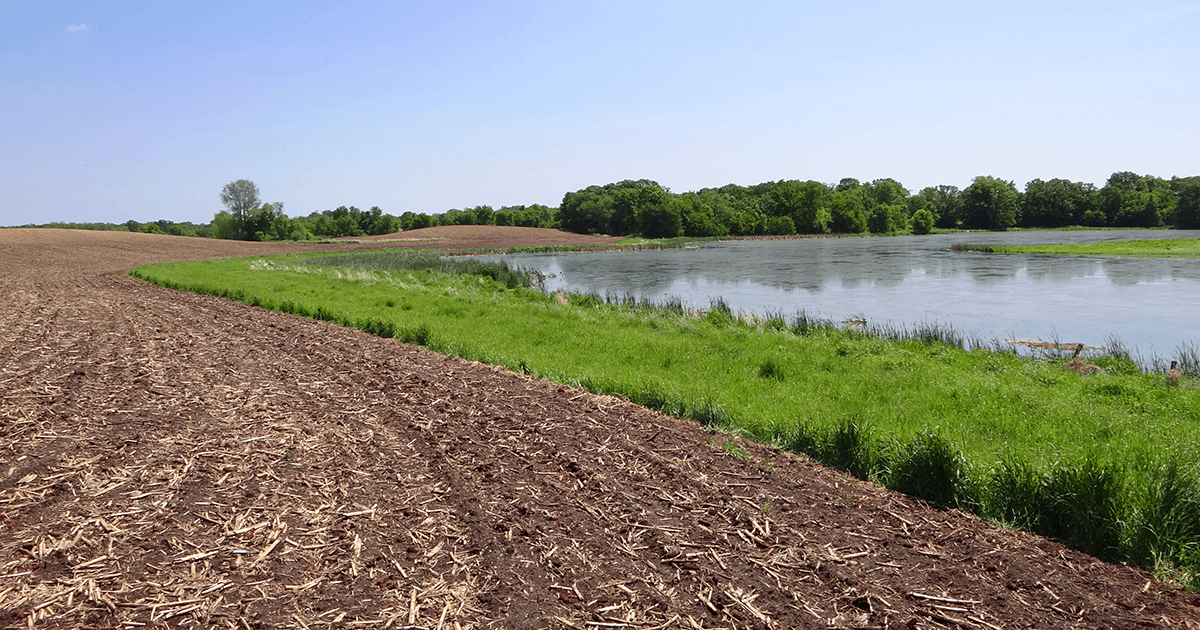Saving the baby AND the bathwater: New hope for a sensible Clean Water Rule
Trump's Clean Water Act rollbacks took away protections for some wetlands and streams. Will the Biden administration reverse them? (Photo by MPCA)
Back in 2019, in what amounted to a textbook case of throwing the baby out with the bathwater, the Trump administration adopted new regulations that significantly undermine how our nation's public water supplies are protected.
Now, an independent review helmed in part by Bonnie Keeler, the University of Minnesota's preeminent water economist, has found that the federal government's decision-making process was fundamentally flawed because it "used dubious methodology to justify weakening the Clean Water Act." (Read more in MinnPost's "Scientific panel with U prof hopes review of Trump water rules gains traction with Biden administration.")
Keeler's work and that of her colleagues on the nonpartisan review committee has already gotten the attention of the incoming Biden administration, and should lay the groundwork for rebuilding this vital law. Their findings echo those of an earlier federal advisory panel, which warned that Trump's action "lacks a scientific justification, while potentially introducing new risks to human and environmental health."
Should wetlands count as waters of the U.S.?
The rule in question is called the "Navigable Waters Protection Rule" and like many reactionary laws, this title clouds its actual impact, which has been to give corporate polluters a free pass to befoul waterways across the country.
In essence, political appointees at the Environmental Protection Agency (EPA) and the US Army Corps of Engineers narrowly defined what kinds of waters are subject to federal protection, stripping essential safeguards from tens of millions of acres of wetlands and countless miles of small and ephemeral streams. Instead, the administration held that states would pick up the slack.
Unfortunately, water follows its own rules rather than political wishes, and one state's decision affects all of its downstream neighbors. Keeler's colleague David Keiser, co-chair of the EPA advisory committee, says that this is the wrong way to go: "They are trying to make the argument that states are the better regulators of local goods, such as water quality," Keiser said. "We argue that that is inconsistent with what we know about hydrology and the connection of waterways."
Minnesota state rules mostly protect the water bodies left exposed by federal government, but that could change if anti-environment lawmakers come to power. And because wetlands in particular are so important to migratory waterfowl and other wildlife, what happens in less-progressive states has a real impact here. Even beyond that, wetlands are among our most important carbon sinks, with enormous implications for climate change.
The National Farmers Union wants clean water
Much of the discussion about the Trump regulations revolves around agricultural impacts. In Minnesota farms are responsible for a significant amount of nutrient and sediment runoff (and leaching, or underground flow) that aggregates from drainage ditches and small streams to larger tributaries and ultimately into the Mississippi, the Red River and Lake Superior.
Like every industry, different farmers have different opinions about what it means to be responsible stewards of the land, but historically the sector has advocated for less stringent environmental regulations. That's why it's important to note when major players like the National Farmers Union (NFU) express caution around regulatory rollbacks. When the "Navigable Waters" rule was finalized, NFU President Roger Johnson put out a statement that is worth re-reading:
"Family farmers and ranchers have been confused by ambiguous water regulations for many years. Now that we have a more precise definition of WOTUS, we hope that farmers will better understand which kinds of water are subject to federal authority and which are not. But farmers don’t just need greater clarity – they also need access to clean, safe water for their families, their farms, and their communities. These needs are not mutually exclusive; when regulating natural resources, EPA and the Army Corps of Engineers must balance certainty for farmers, ranchers, and property owners with protections for our water supply. And while Farmers Union policy generally supports local decision-making, some states may be unprepared to regulate significantly more waterways. Moving forward, we will review the final rule closely to assess its full impacts on family farmers and ranchers and rural communities."
What's next?
Friends of the Mississippi River strongly urges the Biden administration to focus on the key part of NFU's message by ensuring that farmers, their neighbors, and every community has access to clean, safe water. This requires undoing the dangerous rollbacks of the Clean Water Act; investing in healthy soils and innovative, water-friendly farming techniques; and strengthening the authority of scientists and nonpolitical staff in the federal agencies.
Fortunately, it appears that the incoming government will give a more prominent seat at the table to experts like the U of M's Bonnie Keeler. It's up to the rest of us to help drive change in our own circles.
For our part, FMR is working hard to introduce a new wide-ranging program called the Mississippi River Restoration and Resilience Initiative (MRRRI) to protect water resources, habitat and our communities in the mainstem river states. We will be sharing more news about this effort in the months ahead, and will be asking for your help in moving it forward, so stay tuned!
